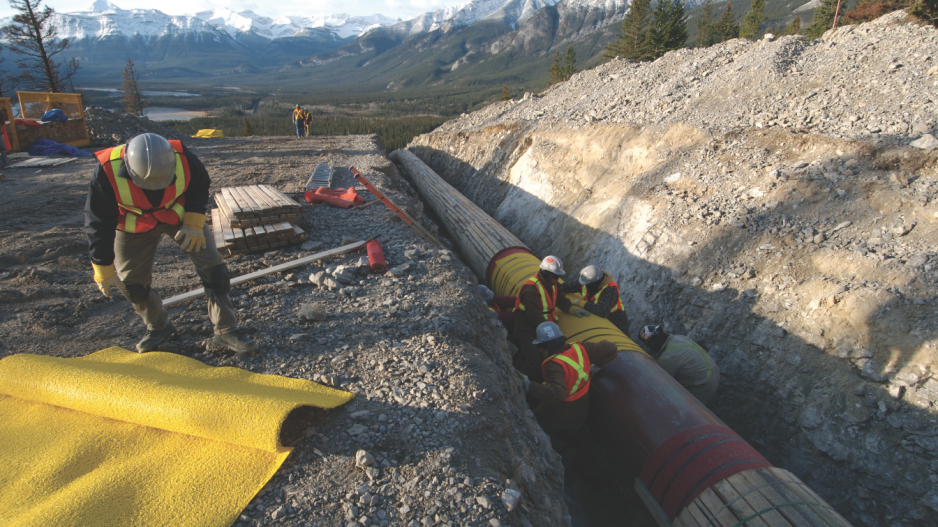B.C. landowners in the path identified for the Trans Mountain pipeline expansion may be wondering what they can expect should the $7 billion project be approved.
There is a trailer to this movie in the form of a section of the pipeline in Alberta and B.C. that was already twinned in 2008, and according to one B.C. family business, it’s a bit of a horror show.
Kinder Morgan Inc. (NYSE:KMI) wants to triple the capacity of the pipeline, which runs from Alberta to Burnaby, to give oil companies better access to foreign markets for Alberta oil.
Ten days of public hearings before a National Energy Board (NEB) panel are currently underway in Burnaby. According to the Masanobu Shoji family’s presentation to the NEB on January 20, landowners in the path of the twinning corridor have good cause for concern.
Between 2007 and 2008, Kinder Morgan twinned a section of the pipeline between Hinton, Alberta, and Rearguard, B.C. – a section called the Anchor Loop.
The Shoji family owns the Mount Robson Ranch, a private campground with rustic cabins just inside B.C. near Valemount.
The Shojis said they were forced to cancel reservations and shut down for a season after Trans Mountain crews severed a pipe that supplied water to the campground while clear-cutting trees.
Not only did they lose revenue from that season, the severed pipe also resulted in “a breakdown of their relationship with many tour outfitters,” said Julia Hincks, legal counsel for the Shojis.
In June 2008, the campground was flooded, “most likely as a result of the removal of the buffer of trees required for the installation of the pipeline,” Hincks said.
Trans Mountain built up a bank to prevent future flooding, but when it breached, the Shojis said it took Trans Mountain three months to clean up the mess from the flooding.
“When they came, they removed some silt but left the campground in very poor repair, and since then the Shojis have been unable to qualify for a campground licence, as the quality of the campground has significantly diminished,” Hincks said.
But despite the concerns the Shojis have raised over the Anchor Loop work, not all landowners in B.C. are opposed to the Trans Mountain expansion.
Among the interveners is a group of 92 Fraser Valley landowners – farmers, mostly – collectively called the Collaborative Group of Landowners Affected by Pipelines (CGLAP).
They already live with the original pipeline and are sometimes limited in the work they do on the land, as a consequence.
“We are not opposed to pipelines,” said Peter Reus, a CGLAP spokesman. “We know it’s much safer than rail transportation.”
The landowners’ main concern is compensation and how it’s paid. They are being offered lump-sum payments for the disruptions the pipeline may cause. In Reus’ case, his three-acre vegetable farm would get a lump sum of $80,000.
But he and others feel the money should not go to them in a lump sum, but be paid in annual instalments to the landowner, whomever that may be in the future.
“I want a thing that is fair to my children,” Reus said. “They will follow in our footsteps.”
Excluding First Nations reserve lands, roughly 2,766 private landowners would be affected by the pipeline expansion.
@nbennett_biv




